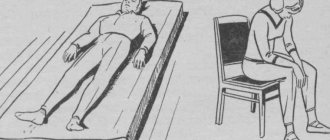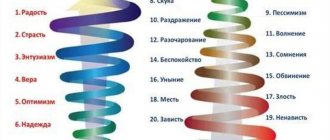- What is the Dunning–Kruger effect?
- What explains this paradox?
- A few important takeaways
- Dunning–Kruger effect: evaluation of errors and results
- Application of the Dunning–Kruger law in practice
“Someone else’s work always seems easy”, “The more I know, the less I know” (or, as Socrates said, “I know that I know nothing”). These and many other similar phrases reflect a feature of our perception, which is scientifically called the Dunning-Kruger effect .
This cognitive error was described in 1999 by American social psychologists David Dunning and Justin Kruger.
What is this paradox, how does it work, and why is it useful to remember?
The essence of the effect
This is a cognitive distortion in which people perceive their ability and knowledge in some area to be higher than they actually are. They do this unconsciously. And they have no opportunity to notice their incompetence.
At the same time, people who have deep knowledge and professionalism usually demonstrate less confidence in themselves and their competencies.
The essence of the Dunning-Kruger distortion is briefly formulated in the book of Charles Darwin.
Ignorance more often breeds confidence than knowledge.
Underestimating one's own competence
In their first study, Dunning and Krueger also found that students scoring in the top quartile (25%) tended to underestimate their own competence. And although they have a much better understanding of where they are, they feel that if the task is clear and simple for them, it should be so for everyone else.
That is, if we take a person from each of these two groups (those who fall into the lowest and highest 25%), we will see that they both participate in the “illusion of confidence” - on the one hand, this self-confidence, on the other, confidence in everyone else.
History of the study of the Dunning-Kruger law
From time immemorial, humanity has known that “fools are blind to their stupidity.”
In addition to Darwin, the essence of this metacognitive distortion was formulated by Lao Tzu, who stated that “he who knows does not speak, the speaker does not know” and Confucius (“true knowledge is to know the limits of one’s ignorance”).
There is a similar saying in the Bible.
Anyone who thinks that he knows anything does not yet know anything as he should know.
The mental fallacy was scientifically substantiated only in 1999, when social psychologists David Dunning and Justin Kruger conducted their famous experiment.
The researchers asked people to rate how good they were at grammar, humor, and logical problem solving. Then they gave tests that revealed the corresponding abilities.
It turned out that those participants who had low test scores (12%) rated their abilities highly - by 62%.
Later, many more scientific studies were carried out to prove the existence of this cognitive law.
Feedback
Although we all seem to be equally prone to deluding ourselves, there is another interesting nuance between those who are confident in themselves and those who have confidence in everyone else.
In their research, Dunning and Krueger found that good students were better able to predict their performance on future exams if they were given accurate feedback about their current scores and their relative ranking in the class. The lowest performing students did not change their predictions even after receiving clear and repeated feedback that they were performing poorly. They simply insisted that their assumptions were correct.
Whether or not to believe the effect described above is your choice. By the way, Dunning and Kruger were awarded the Ig Nobel Prize for their research in 2000. I just want to convey to you that you don’t need to believe everything that “authoritative” sources tell you. Always be a little skeptical about the information that comes into your ears. Especially during the next hysteria. After all, no one knows by whom and why this hysteria was started.
Source of information for this article
Reasons for the paradox
To realize one’s incompetence in a matter, a person needs to understand this issue at least a little.
But if he doesn’t understand it at all, then he cannot realize that he doesn’t understand it. After all, in his mind everything is clear and precise: this is the fifth, this is the tenth. But he is not able to understand that in reality everything is different, because everything is obvious to him. As a result, the less competent a person is in any area, the lower the chances that he will recognize his incompetence.
A vicious circle is formed:
- I know nothing in any area;
- but to understand this, I must know something;
- but I do not have the ability to find out anything on this issue;
- and if I don’t know anything, then I don’t understand that I don’t know anything, and therefore I know everything.
People suffering from Dunning-Kruger bias have limited metacognitive abilities. That is, they cannot, at least to some extent, look at themselves, their decisions and actions objectively from different points of view.
The syndrome has three main manifestations:
- overestimation of one's abilities;
- reassessment of one's knowledge;
- underestimation of one's competence.
Usually, when they talk about distortion, they mean the first two points.
Which candidates should you pay special attention to?
The explosive mixture of incompetence and self-confidence is especially destructive for a company in which such an employee holds a leadership position. In this case, overestimating your own capabilities is not the worst thing that can happen. It’s worse when such a “leader” is not able to adequately assess the personal and professional qualities of team members. It creates an unhealthy atmosphere in the team, based on criticism and underestimation of abilities. Subordinates have no chance to show all their professionalism and grow their careers. As a result, the best employees leave, and only those who accept the rules of the game and satisfy his self-confidence remain to work under such a manager.
What does Dunning-Kruger syndrome lead to?
- Incompetent people do their jobs poorly. At the same time, they are unable to understand that they did it badly. They are sincerely confident that they completed the task perfectly, and view critics as people opposed to them. Such behavior is easy to replace after exams, when many of the students who have failed the course are convinced that it is not their knowledge that is lame, it is the teacher who is evil.
- Unskilled workers cannot sensibly assess the professionalism of their colleagues. And they believe that they are the only ones working here as they should, and the rest are fooling around. Such people often experience hostility towards those who achieve great success and move up the career ladder faster, because they believe that their place was taken, and it was taken with the help of behind-the-scenes intrigues.
- People who have little understanding of the issue and are not aware of it, like to speak out about what they do not understand. This behavior is fraught with conflicts, since not every person who deeply understands the issue is ready to sit and be silent while an ignoramus lectures him. At the same time, the ignoramus himself is not able to realize his ignorance and admit the authority of a professional and his wrongness.
- If Dunning-Kruger syndrome is demonstrated by a person with authority on the Internet, for example, a famous Instagram character, he can cause the spread of any nonsense in the heads of his subscribers. And this nonsense is not always safe.
- The effect underlies a huge number of erroneous decisions that were made by a person who was confident that he could judge the object or phenomenon with which the decision was made. But in reality, there was not enough awareness, and in order to correctly solve the problem it was necessary to either collect more information or ask for help. But the person, confident in his rightness and knowledge, did not do this. And failed.
- While under the influence of the Dunning-Kruger symptom, a person may become depressed because he decides that he is not valued, his abilities and knowledge are not noticed. The whole world turned against him. Although in reality the world is simply telling him that perhaps he is not as good at something as he thinks.
- The presence of a cognitive distortion prevents the adoption of experience from more competent older comrades and colleagues. And therefore it interferes with the growth of professionalism and advancement in the chosen field.
- Under the influence of distortion, a young person may choose the wrong field of activity, as he will believe that he is incredibly good at something, although in reality he can only achieve a “satisfactory” rating.
- The reverse effect of the Dunning-Kruger error also does not lead to anything good. So the researchers found that this often includes women who rate their scientific knowledge and abilities lower than men. Therefore, they refuse to participate in scientific competitions or do not apply for a particular position, because they think that they are not good enough and that a male competitor can do a better job.
- Since ignorant people have higher self-esteem and confidence in their abilities and knowledge, they play the main role in socio-political life. This applies to both the politicians themselves and those who vote for them. And it is beneficial for politicians to have an electorate affected by the Dunning-Kruger effect. After all, those who know little but think a lot about themselves are easy to manipulate. And those who know and are able to do something should not be afraid, since they will be embarrassed to oppose.
Schedule
In psychology there is a graph of the Dunning-Kruger effect. The vertical axis shows the degree of confidence (from low to high). Horizontal - level of professionalism (beginner, sage and guru). According to him, this psychological phenomenon is observed mainly at the beginning of a career path, when a person is full of hope and self-confidence. And only then, on the path of transforming from a teapot into a high-level specialist, does he get rid of this yoke. The following milestones are indicated on the chart.
Peak of stupidity
A beginner has a low level of qualifications and a small amount of knowledge, but at the same time is very self-confident. He sincerely believes that his skills and competence can outshine anyone and ultimately save the world. He sees himself as a Nobel laureate and the latter-day Steve Jobs. He doesn’t listen to anyone, because he’s sure that none of his colleagues are capable of reaching his level. He makes a number of total mistakes that he simply does not see or realize. They bring him to the peak of stupidity.
There are only 2 ways from there. The first is to stay on it for life, hand in hand with your Dunning-Kruger effect. Such people constantly change jobs and blame their failures on fate and management, which underestimates them. The second is to engage in self-development in order to grow further professionally. This helps to realize reality. The man is finally freed from overconfidence and falls into the valley of despair.
Pit of Misery
At this point in the graph, a person eats away at himself with regrets about the time when, due to excessive self-confidence, he made too many mistakes in the professional field. Shame creates a lack of confidence in oneself and one’s professional qualities. Everyone, depending on their own strength of spirit, experiences this stage in their own way.
Some people stay there for a very long time, without taking any active action and constantly doubting their every step. Others are helped by the support of a loved one, the trust of their boss...
From the pit of suffering they gradually climb out onto the slope of enlightenment.
Slope of Enlightenment
Those who have already been in the pit of suffering pull themselves together and, despite their inferiority complex, begin to develop themselves, complete courses, gain experience from their elders, forcefully take on difficult tasks and complete them, taking into account and analyzing mistakes. They understand that only teaching will allow them to achieve at least some heights.
The slope of enlightenment is one of the main steps on the path to becoming an expert. Self-esteem gradually increases, but is already much more adequate than that of a beginner. Knowledge and experience are acquired. Errors are becoming less and less. Each of them still hurts, but is acknowledged, analyzed and corrected.
Stability plateau
Professionalism is brought almost to the point of automaticity. All courses available have been completed. All heights have been conquered. There is plenty of experience and experience. And errors at this stage are practically excluded. The bosses respect and offer high positions. A decent salary, recognition from colleagues, victories in professional competitions, responsible projects - all this gives the name to this point on the graph, but...
This is where the opposite effect of the Dunning-Kruger effect is observed. A person begins to understand how much he still does not know. This gives rise to internal contradictions and doubts in him. He doesn't think of himself as a genius. On the contrary, he believes that he still has to grow and grow.
Business implications
There is an opinion that distortion is especially dangerous for the business sector.
- People who demonstrate the Dunning-Kruger effect are usually 100% confident in themselves. Sometimes this allows them to interview more effectively or get promoted to higher positions faster. As a result, they find themselves in a position that is beyond their level of competence. And they fail the job.
- The presence in a team of a person with a clearly manifested distortion leads to a deterioration in the psychological climate. The behavior of such a person often causes scandals due to the fact that more competent colleagues cannot bear his know-it-all attitude. A bad psychological atmosphere will reduce the performance of all team members.
- The distortion can affect the effectiveness of interaction with clients, who either become victims of an employee with the Dunning-Kruger phenomenon, or demonstrate it themselves, which infuriates the specialist.
What to do?
The Dunning-Kruger effect interferes with the life of not only its bearer, but also those who have to deal with it in the professional field. How to fight?
What should the carrier do:
- Take the Dunning-Kruger effect test. Make sure it is there.
- Diagnose your own mistakes in the professional sphere. How often do they happen? What causes them? Admit that you yourself are to blame for them.
- Engage in self-improvement: enroll in advanced training courses, read specialized scientific literature.
- Consult with older and more experienced colleagues.
- Learn self-criticism.
What to do for those who are faced with a prominent representative of this psychological phenomenon:
- Do not argue, do not humiliate, do not raise your voice. It's a waste of time.
- After making another mistake, first analyze it yourself, collect evidence of who is to blame for it, and present it to the amateur. But with calm explanations, not complaints.
- Offer help in solving various work tasks, or at least doing them together.
- Involve management and other colleagues in this.
If no one does anything to combat this phenomenon, people with the Dunning-Kruger effect can spend most of their lives at the peak of stupidity (see graph). This threatens the lack of any career growth and the conservation of the knowledge and skills that were originally available. Lack of self-improvement leads to a decrease in IQ level.
Who is affected?
All people without exception. We all have blind spots that we don't notice.
It’s nice to think that only very stupid people make mistakes, but I myself am all so reasonable and judge things extremely sensibly. Unfortunately, it is not.
David Dunning himself always emphasizes that the essence of understanding the law is not to decide that it is tied to fools, and not to count yourself among these fools. The point is to realize that a mistake is a natural distortion of the brain, and therefore anyone can make it.
There is no one in the world who would be a professional in everything. Therefore, if a person has unusually high competence in one area, he may be a complete zero in another. And if he suddenly wants to speak “authoritatively” on issues in this other area, he can easily demonstrate Dunning-Kruger syndrome.
However, some people exhibit the error more often than others. Typically these are those who:
- poorly educated;
- is not a professional in any field;
- has high self-esteem;
- does not value other people's authority and achievements.
Even a Nobel laureate can demonstrate distortion if he begins to speak out on an issue about which he understands nothing. But the likelihood of this is lower than that the mistake in all its glory will be revealed by a seventeen-year-old diva scribbling comments on YouTube, or by her grandmother, who has worked all her life in a kindergarten and is now discussing with her neighbors the likelihood of global warming.
No wonder Albert Einstein said:
The more I learn, the more I realize how much I don't know.
How to get rid of the syndrome
- Be more modest.
- Recognize that there is a cognitive bias called “naïve realism” that gives rise to the Dunning-Kruger effect. We tend to think that if something seems obvious, then it is so. But in reality this is not always the case.
- Expand your knowledge about the world. Study more.
- Understand that the modern information space is structured in such a way that it in every possible way encourages the occurrence of the effect. So, if previously not a single freshman would have thought of “opposing” the professor, today such behavior is considered par for the course. Anyone, hidden behind the mask of an avatar and nickname, can argue in the virtual space with professionals. He may write nonsense and believe that this is how it should be. And others will look at him and do the same.
- Ask yourself the question “what do I know about the subject?” and answer it honestly. To make this easier, you can try to formulate at least 5 deep questions about the problem under discussion. To ask such questions, you need to at least somehow understand the topic. Otherwise, you won’t be able to formulate them - you simply won’t think of what to ask. It will be absolutely good if you give a detailed answer to each of the questions you have come up with and only after that you will speak out loud on the topic.
- Learn to say “I don’t know” and not be ashamed of it. One should be ashamed of know-it-allness, which in principle cannot exist. And there is nothing shameful in objectively assessing yourself, your abilities and knowledge.
- Listen to criticism. Especially those people who are known for their competence in the area in which you are being criticized. If a manager points out mistakes, it is very likely that they were actually made. And he wants to achieve higher quality work, and not ruin your nerves.
“The Lemon Thief”, thanks to which a real discovery in psychology was made
The story begins quite comically. In 1995, a healthy, large, middle-aged man robbed two banks in Pittsburgh in broad daylight. Without a mask, with a smile on his face, he looked at the security cameras and seemed to be completely unafraid of anything. At a minimum, he did not care that he would be remembered and then identified as a criminal.
The police detained the would-be thief that same night, leaving him in complete shock. MacArthur Wheeler (that was the attacker's name) looked at the video surveillance footage in bewilderment, muttering something about some kind of juice. As it turned out during interrogation, Wheeler was confident that lemon juice applied to his skin would make him completely invisible to CCTV cameras.
«ARGUMENT
The reason was that it is the juice that is used as invisible ink.”
And it was logical to assume that, away from heat sources, Wheeler should also be completely invisible. After lengthy interrogations and tests, the police came to the conclusion that the thief was neither crazy nor under the influence of alcohol or drugs: he was simply so stupid that he truly believed in his idea and was so deeply mistaken.
American psychology professor David Dunning heard about the story and, together with his graduate student Justin Kruger, decided to find out what was going on in the head of the unfortunate thief and how this could happen to a person in the modern world. During experiments and tests, a phenomenon of cognitive distortion was identified, called the “Dunning-Kruger effect.”
Why fight the effect if everyone has it?
- The less often we are affected by the Dunning-Kruger effect, the better we see our blind spots and the more effectively we can adjust our perceptions and behavior in accordance with reality, rather than our ideas about it.
- Reducing the influence of bias allows you to make important decisions based on the analysis of information obtained from authoritative sources, and not only on the basis of your judgment and experience, which are often insufficient to make the right decision.
- The weaker this mental error is manifested in our lives, the more we listen to information and advice from competent people, and not from those who imagine themselves to be such and shout about it on social networks.
- Reducing the distortion helps you get rid of envy of more successful people, and, therefore, get more pleasure from your own life.











